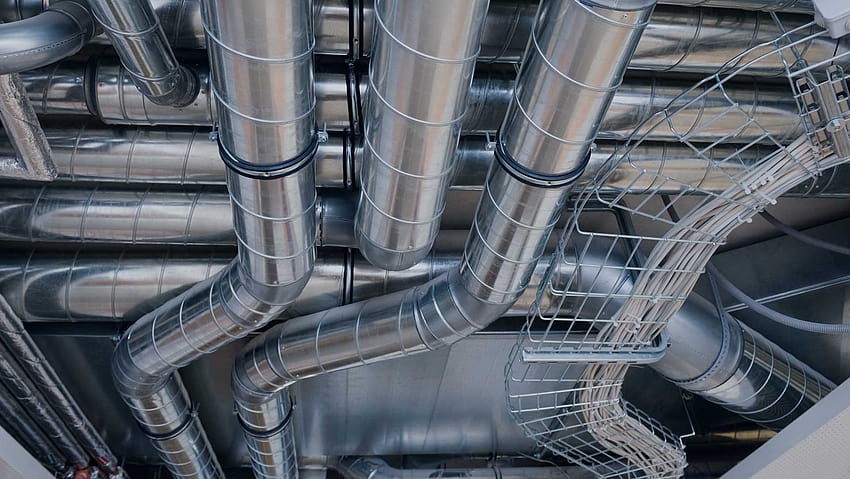
In today’s fast-paced world, maintaining a comfortable home environment has become more important than ever. With the shifting seasons bringing a range of temperatures, investing in effective heating and air conditioning systems is essential for creating a sanctuary that meets your needs year-round. Whether it is the chill of winter or the heat of summer, having control over your indoor climate allows you to enjoy a higher quality of life.
Understanding the nuances of heating and air conditioning can empower homeowners to make informed decisions about their comfort systems. From selecting the right equipment to optimizing energy efficiency, each choice plays a significant role in how effectively your home retains warmth or cool air. Join us as we explore the best techniques and technologies to master your home’s climate, ensuring your space remains cozy and inviting all year long.
Understanding HVAC Systems
Heating, ventilation, and air conditioning, commonly referred to as HVAC, plays a crucial role in maintaining a comfortable indoor environment. HVAC systems are designed to regulate the temperature and air quality within spaces, whether residential or commercial. They ensure that we stay warm in the winter and cool during the summer while also circulating fresh air and filtering out pollutants and allergens.
An HVAC system typically consists of several key components, including a heater, air conditioner, ductwork, and various controls. The heater can be powered by electricity, gas, or even renewable energy sources such as solar power. The air conditioning unit provides cooling through a refrigeration cycle, which extracts heat from indoor air and releases it outside. Together, these components work seamlessly to provide a comfortable atmosphere throughout the year.
Understanding how your HVAC system operates can help you optimize its performance and efficiency. Routine maintenance, such as changing air filters, cleaning ducts, and scheduling professional inspections, is essential for prolonging the lifespan of your system and enhancing its effectiveness. By mastering the basics of HVAC, homeowners can make informed decisions about upgrades, repairs, and energy-saving practices, ultimately leading to improved comfort and cost savings.
Choosing the Right Heating Options
When it comes to selecting heating options for your home, understanding the different types available is crucial. You may consider choices such as central heating systems, space heaters, or radiant floor heating. Central heating systems, which distribute warm air throughout your home via ducts, are ideal for larger spaces and provide consistent warmth. Space heaters, on the other hand, are perfect for heating individual rooms and can be a cost-effective solution for smaller areas. Radiant floor heating offers the luxury of warmth from the ground up, providing comfort without drafts.
Another important factor to consider is the energy efficiency of your heating option. High-efficiency furnaces and heat pumps may require a higher initial investment but can lead to significant savings on energy bills over time. Look for units with the ENERGY STAR label, which indicates they meet strict energy efficiency guidelines. Additionally, consider alternative heating sources such as solar or geothermal options, which can help reduce your carbon footprint and lower energy costs in the long run.
Finally, assess the specific heating needs of your household. Factors such as your home’s size, insulation quality, and local climate will influence your decision. If you live in an area with extreme temperatures, investing in a robust heating system may be necessary. Consulting with a heating professional can provide valuable insights tailored to your home, ensuring you make an informed choice that balances comfort, efficiency, and cost.
Optimizing Air Conditioning Efficiency
To enhance the efficiency of your air conditioning system, regular maintenance is crucial. Changing or cleaning filters monthly is one of the simplest yet most effective ways to ensure that your unit operates smoothly. A dirty filter can block airflow, forcing the system to work harder and consume more energy. Additionally, scheduling professional inspections at least once a year can help identify potential issues before they become costly problems.
Another effective way to optimize your air conditioning efficiency is by utilizing programmable thermostats. These devices allow you to set temperature schedules based on your daily routines, ensuring that the system doesn’t cool your home unnecessarily when you are not there. By raising the temperature when you are away and cooling it down just before you return, you can comfortably maintain your desired environment while reducing energy consumption significantly.
Finally, consider improving your home’s insulation and sealing any leaks around doors and windows. Proper insulation helps keep the cool air inside and the hot air outside, making your air conditioning system work less. In addition, using fans to circulate air can enhance the overall comfort of your home without relying solely on the air conditioning unit. These strategies collectively contribute to a more efficient air conditioning system, resulting in both comfort and cost savings.